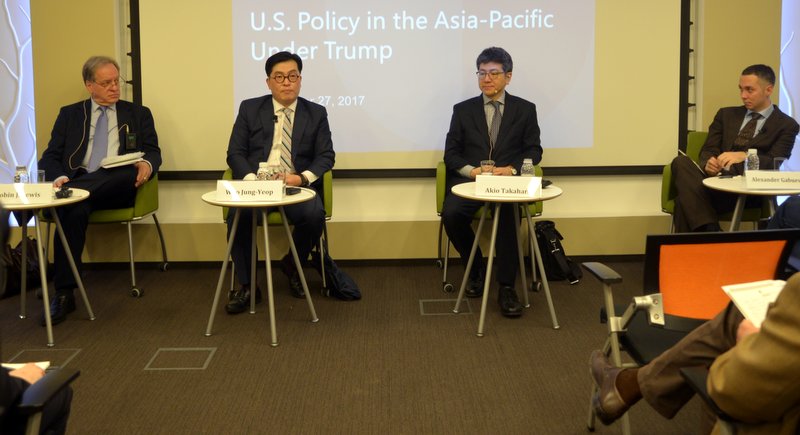Registration
You will receive an email confirming your registration.
Carnegie Moscow Center hosted a seminar on U.S. policy in the Indo-Pacific region under the Donald Trump administration and the new challenges it might bring to the system of checks and balances in regional security.
The APEC and EAS summits, which concluded in early November, underscored not only the importance of the Indo-Pacific region as a driver of global growth, but also the mounting challenges to regional security. Territorial disputes between a rising China and its neighbors, the escalation of tensions on the Korean peninsula, and increased geo-economic rivalry among major powers put regional stability at risk. At this crucial time, the Trump administration is still formulating its policy toward the region. As America increasingly disengages from the region, countries like Japan, India, South Korea, and Australia are looking for ways to step up their cooperation in order to jointly tackle various challenges.
- Does the United States still have a strategy for the Indo-Pacific region, and how do regional powers see it?
- What is driving India, Japan, and South Korea closer to each other?
- What do the new regional dynamics mean for Russia’s “Pivot to Asia” at a time when Moscow is enhancing its strategic partnership with Beijing amid growing tensions with the United States?
These and many other questions were discussed by a panel of distinguished experts. Carnegie’s Alexander Gabuev moderated.
Speakers
Robin J. Lewis is a professor and program director at Russian Presidential Academy (RANEPA).
Akio Takahara is a professor at Tokyo University (Japan).
Woo Jung-Yeop is a research fellow at The Sejong Institute (South Korea).
Moderator
Alexander Gabuev is a senior associate and the chair of the Russia in the Asia-Pacific Program at the Carnegie Moscow Center.
